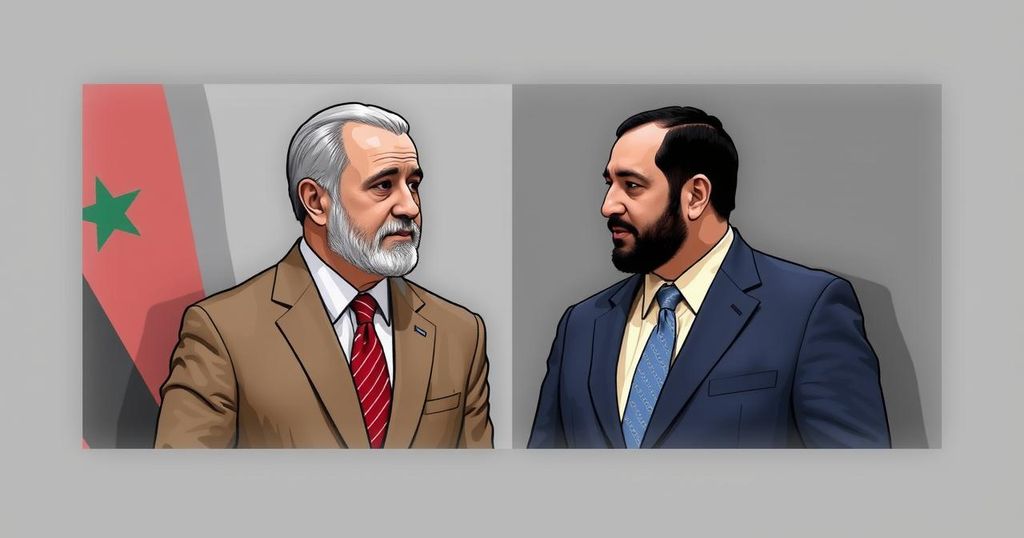International Outreach Grows Towards Syria’s Interim Leadership Post-Assad

Following the recent ouster of President Bashar al-Assad, global governments are increasing diplomatic efforts to engage with Syria’s interim rulers. This shift has resulted in celebrations among Syrian citizens who express a sense of liberation. Despite the ambiguity surrounding the new leadership, nations are moving forward with aid and support initiatives while calling for justice and stability in the region.
Governments across the globe are intensifying diplomatic efforts to establish relations with Syria’s interim leadership, following the recent ousting of President Bashar al-Assad on December 8, 2024, by Islamist-led rebels. This unexpected shift in power has generated widespread celebrations within Syria, as citizens express a newfound sense of freedom. For instance, a student at Damascus University remarked, “We feel liberated, and the chains have been broken. Fear has been shattered.”
In the wake of Assad’s removal, international diplomats, including UN envoy Geir Pedersen, are advocating for the establishment of an inclusive administration that focuses on rebuilding the nation and ensuring justice. Pedersen emphasized the necessity for a credible justice system to prevent revenge actions, having already met with the leader of Hayat Tahrir Al Sham (HTS), the group responsible for the offensive.
Qatar has reaffirmed its commitment through a recent diplomatic visit, opening its embassy for the first time since it was closed during the civil unrest. This comes alongside Turkey’s resumption of operations at its embassy in Damascus. Despite Western nations considering HTS a terrorist group, countries such as the United Kingdom and the United States have maintained communication with the organization, recognizing the need for support in the region. British Foreign Minister David Lammy confirmed ongoing contacts and announced an aid package for the Syrian population.
Amidst these changes, the humanitarian crisis remains acute, with a urgent call for aid following Assad’s exit, which liberated many detainees who suffered in notorious jails. One former detainee recounted the horrors of imprisonment, stating, “Towards the end I just wanted to die, waiting for when they would execute us.”
The interim government faces the daunting task of reconstruction amidst significant infrastructural and social challenges, with calls for immediate assistance to alleviate the pressing needs of the populace. Meanwhile, there is cautious optimism among certain communities, such as Syrian Christians, who express relief and assurance in their current situation.
As the international community endeavors to navigate this complex landscape, it remains to be seen how the future governance in Syria will address the rights of its diverse populations and manage external influences from regional powers, particularly given the historical context of the civil war and the geopolitical interests at play.
The article discusses the political transition in Syria following the recent ousting of President Bashar al-Assad by Islamist-led rebels. This significant event has prompted numerous governments to reassess their foreign policy towards Syria, focusing on engaging with the new interim rulers. The ramifications of a decade-long civil war, characterized by vast human suffering and displacement, form the backdrop for this international outreach, as nations strategize on how best to support the population while addressing the challenges posed by militant groups such as Hayat Tahrir Al Sham (HTS).
In conclusion, the article highlights the burgeoning diplomatic efforts from various nations to reconcile with Syria’s new interim leaders following the overthrow of Bashar al-Assad. As the international community calls for inclusion and justice in Syria’s rebuilding process, there exists a mixture of hope and caution regarding the nation’s future governance and the equitable treatment of its diverse communities. The path ahead appears fraught with challenges as reconstruction and aid efforts become paramount.
Original Source: jordantimes.com





